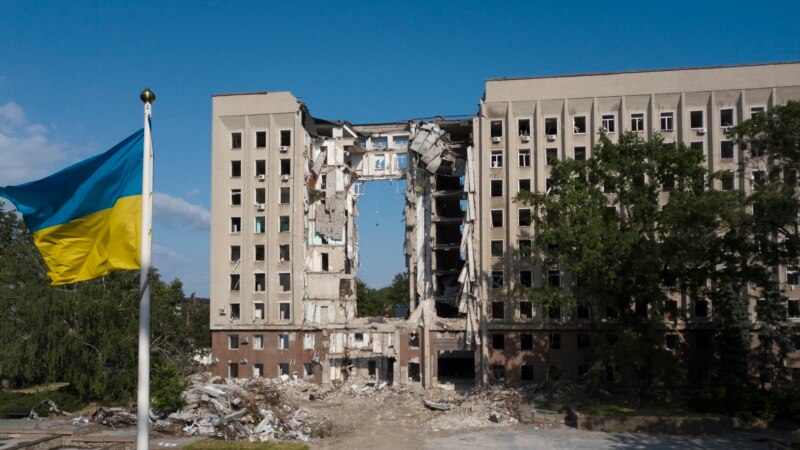
Here is a fast take on what the international community has been up to this past week, as seen from the United Nations perch:
UN warns of global food crisis if war in Ukraine isn’t ended
U.N. Secretary-General Antonio Guterres said Wednesday that the Russian invasion of Ukraine must end to stem the growing global food, fuel and finance crises, which could push tens of millions more people across the world into hunger and poverty this year. But until that happens, he said, immediate action is needed to bring stability to global food and energy markets in order to slow rising prices, and resources need to be made available to help the poorest countries and communities withstand the shocks.
War in Ukraine Could Push Millions Into Hunger Worldwide
Somalia at risk of another famine
The United Nations warned Tuesday that Somalia is at risk of another famine, as consecutive droughts have withered crops and killed thousands of livestock, and grain imports from Ukraine and Russia have dramatically dropped because of their war. Nearly half the country’s population, about 7.1 million people, is facing crisis-level food insecurity or worse at least through September, of which 213,000 could face faminelike conditions.
UN: Without Action, Famine Looms for Somalia
IAEA says Iran removing surveillance cameras from 27 nuclear sites
The head of the U.N. nuclear watchdog agency said Thursday that Iran had removed 27 surveillance cameras from nuclear sites around the country, impeding the agency’s ability to monitor the country’s nuclear activities. International Atomic Energy Agency Director-General Rafael Mariano Grossi warned that the move could also deal a “fatal blow” to international negotiations to revive the 2015 Iran nuclear deal.
IAEA: Iran Removing Cameras From Some Nuclear Sites
Human Rights Watch urges Security Council to use travel ban to pressure Taliban
Human Rights Watch called on the U.N. Security Council on Thursday to use its travel ban on specific Afghan Taliban leaders who have been implicated in serious rights violations, in particular with respect to women’s and girls’ rights. The travel ban, which affects 41 members of the current Taliban administration in Kabul, was partially suspended three years ago to allow 14 top leaders of the group to engage in peace talks with the United States. The Security Council will discuss Afghanistan on June 23.
Watchdog Demands UN Reinstate Travel Ban on Afghan Taliban for Rights Violations
In brief
— This week, the U.N. General Assembly held a series of elections for its 77th session, which starts September 13. On Tuesday, Hungarian diplomat Csaba Kőrösi was elected by acclamation to become the next president of the general assembly. On Thursday, the member states approved five candidates for nonpermanent seats on the 15-nation Security Council. Ecuador, Japan, Malta, Mozambique and Switzerland each overwhelmingly received the requisite two-thirds majority of member states’ votes to confirm their two-year terms, which start on January 1, 2023.
— The U.N. appealed Thursday for $47.2 million to assist 1.7 million Sri Lankans for the next four months, as that country experiences its worst economic crisis since it gained independence in 1948. The resident coordinator in Colombo, Hanaa Singer-Hamdy, told reporters that the funds are urgently needed for food, health care and protection assistance.
Quote of note
“Mr. Ambassador of the Russian Federation, let’s be honest, the Kremlin is using food supplies as a stealth missile against developing countries. The dramatic consequences of Russia’s war are spilling over across the globe, and this is driving up food prices, pushing people into poverty and destabilizing entire regions. Russia is solely responsible for this food crisis. Russia alone, despite the Kremlin’s campaign of lies and disinformation.”
— European Council President Charles Michel, addressing the Russian ambassador during a U.N. Security Council meeting about the war in Ukraine on June 6. His remarks prompted envoy Vassily Nebenzia to walk out of the chamber.
Next week
The U.N. Security Council will discuss Mali on June 13. Mali’s foreign minister, who represents the government that took power in a 2020 coup, will address the meeting. The council is due to decide this month about whether to renew the 14,000-member U.N. peacekeeping force there, known as MINUSMA, for another year. It is one of the most dangerous for peacekeepers and has recently come under a string of deadly attacks from terrorist groups.
Did you know?
The U.N. General Assembly seating plan is much like the one in your high school homeroom. On Tuesday, the secretary-general drew Belize’s name from a hat. On September 13, when the 77th session of the assembly gets underway, it will take the first seat in the hall and the rest of the nations will follow in alphabetical order.
